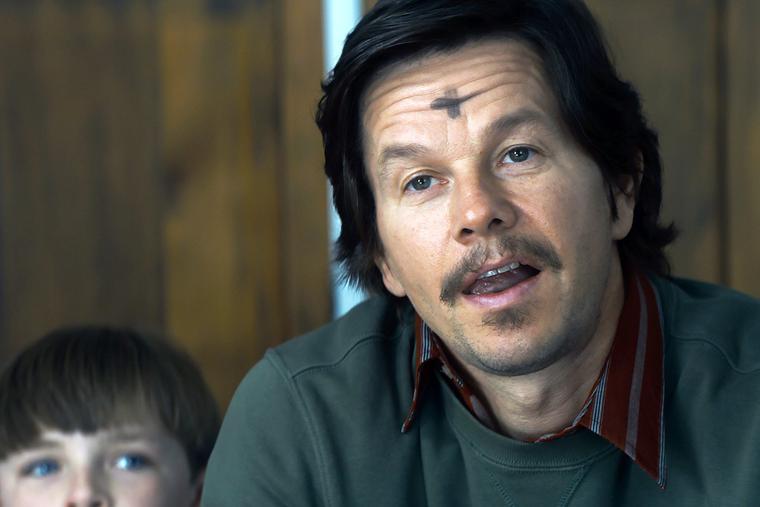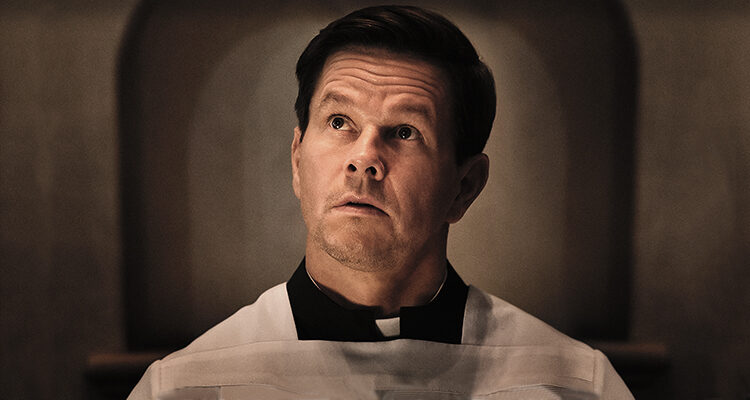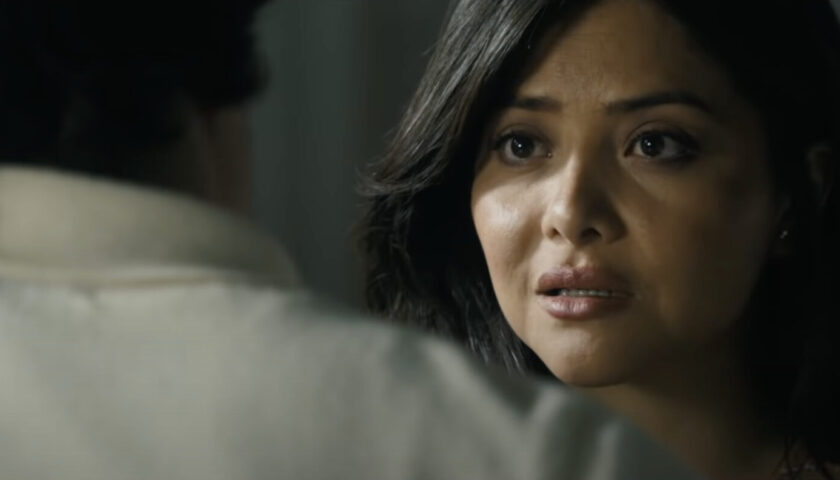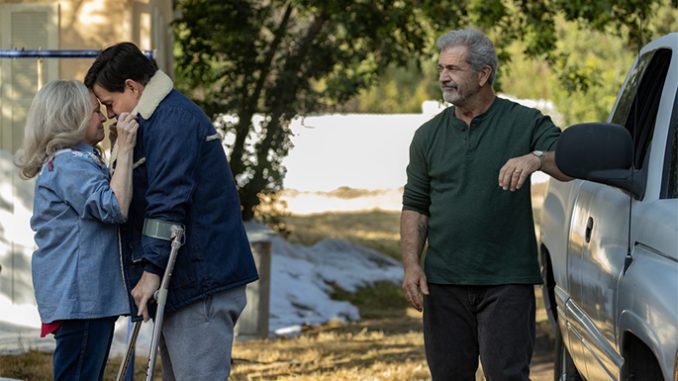“Father Stu” (2022) – Stuart Long might remind you of Rocky Balboa.
Rocky’s early days, anyway.
Well, Stuart never fought Apollo Creed, Clubber Lang, or Ivan Drago. He didn’t win the Heavyweight Championship of the World, nor did he get his start in Philadelphia. Stuart grew up in Montana, and he boxed his way to the state’s Golden Gloves Heavyweight Title. Like Mr. Balboa, Mr. Long took his share of punishment in the ring, and Stu and Rocky also offer advice at times.
For instance, in “Rocky” (1976), The Italian Stallion gives some fatherly guidance to 12-year-old Little Marie.
“You hang out with smart people, you get smart friends. You hang out with yo-yo people, you get yo-yo friends. You see? It’s simple mathematics,” Rocky says.
For Stuart, he ends his brief Big Sky fighting career and moves to Los Angeles to pursue acting. He eventually bequeaths fatherly words too, but in a widely-different capacity. The man grapples with an entirely separate profession, the priesthood.
Stuart Long’s unlikely, winding journey from pugilist to priest is a true story, and Mark Wahlberg learned about Stu after speaking with two priests from his parish.
“The more I heard about Stu, the more convinced I was that I had to get this movie made,” Wahlberg said. He added, “It was my mission to produce the film.”
Yes, Mark produced and stars in the man’s biopic, “Father Stu”, written and directed by Rosalind Ross, and he was committed to the project, including gaining 30 pounds in a few weeks with a diet ranging from 7,000 to 11,000 calories a day.
Well, Stuart’s life is an inspiring, motivational one. This critic is a better person for knowing it through watching “Father Stu”, but unfortunately, this film was an unsatisfying experience.
“Father Stu” takes a straightforward approach in capturing Stuart’s sinful, meandering trek from fighter to father. Rather than pause and lean into the lead’s emotional turns, the screenplay inexplicably rushes – like a checklist – through Stu’s major, massive, mountainous milestone events to seemingly ensure that “everything” is covered within the 124-minute runtime.
The movie presents four momentous incidents – that will not be revealed in this review – that cause cavernous crossroads for Stuart and catapult him from his thumping origins to pious oratories. In two instances, rather than bask in cinematic enlightenment, the audience receives a few minutes of matter-of-fact, unremarkable discourse. Then, the movie feels like the script, actors, and crew shove on to a new collection of mundane minutes, like Stuart complaining about a motel television or his inability to ring a hospital nurse.
Riveting stuff.
Sure, Wahlberg does offer several quiet confessional moments and expresses Stuart’s feelings with his girlfriend, Carmen (Teresa Ruiz), mom (Jacki Weaver), and dad (Mel Gibson). Still, far too often, snippets of twangy country ditties seem to lead and follow these moments and break up any headway to emotionally connect with the character.
Ross doesn’t give Ruiz and Weaver enough meaningful on-screen minutes. However, the tightest connection is between Bill Long (Gibson) and his son. Ross repeatedly films Bill sitting alone and watching television, and Gibson effectively communicates this dad’s regret. Too many times, quite frankly, although those recurring solo shots eventually pay off in the third act.
Anyways, back to Stuart.
Through the vast majority of this picture, Stuart is a happy-go-lucky screw-up. Ultimately, he has good intentions, but via the baggage from his childhood, damaged ties with his estranged father, and a drink-and-punch-first outlook, he perpetually leaves his guard down to life’s haymakers. Honky-tonk music and Long’s carefree banter seem to strive for tones reminiscent of “Smokey and the Bandit” (1977) or “Every Which Way But Loose” (1978). The problem is that Stuart’s act is not terribly amusing, and regrettably, he doesn’t have an orangutan partner who can punch someone after a well-timed “Right turn, Clyde.”
Until Stuart finds God, he’s not exactly the world’s most likable guy. Granted, that’s (probably) Ross’ and Wahlberg’s intention. Stuart is in no way a villain, but for most of the film, I didn’t particularly root for him either.
Picture an unamusing, unsympathetic Philo Beddoe (Clint Eastwood) wandering into (and out of) figurative dead-ends for 80 minutes, and he suddenly turns to a seminary to reach for his life’s purpose. Okay, Stuart ensures that his manners are more refined, but his new allies and human obstacles within the church don’t capture enough screen time to leave impressions, so most scenes with these men are wasted filler.
What is Stuart’s roommate’s name again?
No question, it’s easy to admire Wahlberg’s commitment and passion for Father Stu and his film with the same name. Some audiences will appreciate this movie more than this critic, and I hope that’s the case.
On the other hand, Stuart’s most altruistic work occurs during the last years of his life, but Ross and Wahlberg portray only a few scant on-screen minutes of Father Stu’s devout examples. Perhaps, the journey is more important than the destination.
Still, the movie feels like the equivalent of filming Rocky Balboa vs. Apollo Creed’s first round in “Rocky” (1976) and then explaining the remaining 14 three-minute battles with a lengthy closing crawl just before the end credits.
⭐ 1/2 out of ⭐⭐⭐⭐
Written and directed by: Rosalind Ross
Starring: Mark Wahlberg, Teresa Ruiz, Jacki Weaver, Mel Gibson, and Malcolm McDowell
Rated: R
Runtime: 124 minutes
Image credits: Sony Pictures Releasing







